 There comes a rare time — perhaps once every ten or fifteen years — when you read a book with such dreadful syntax, without even a fiber of merit, so libertine in the manner it insults the audience, and so producing the literary equivalent to being completely submerged into a vat of shit, that the reader, having embarked on the fetid journey, begins to pine for a brutal throng of vigilantes to chop off the author’s hands and prevent the hopeless hack from ever holding a pen or setting foot near a laptop again.
There comes a rare time — perhaps once every ten or fifteen years — when you read a book with such dreadful syntax, without even a fiber of merit, so libertine in the manner it insults the audience, and so producing the literary equivalent to being completely submerged into a vat of shit, that the reader, having embarked on the fetid journey, begins to pine for a brutal throng of vigilantes to chop off the author’s hands and prevent the hopeless hack from ever holding a pen or setting foot near a laptop again.
Yann Martel’s Beatrice and Virgil is such a tome. And Martel himself is such an author. Yes, last year, I spoke considerable ill of Jonathan Littell’s The Kindly Ones. But while Mr. Littell is a dreadful writer, I did not harbor retributive fantasies. I merely screamed out in pain and spent most of the day on the floor. Mr. Martel, however, is an altogether different specimen. Here we have a man who has written a book that is more crudely formed than a schoolboy’s primer, that contains a moral vision less sophisticated than the dribbling one might encounter from a human vegetable. And Beatrice and Virgil deserves to be severely reviled because this book, which should not have even been permitted even the fourth-class method of self-publication, earned its bumpkin author a six figure sum through indolence and incompetence. When I finished reading this book, I threw it with such force against the wall that a hairline crack formed in the plaster. And even if you have the basest literary taste (no judgment from me, I assure you), that is the kind of thing that this book will do to you. This book will fill you with such vileness that you will find yourself instantly ruminating about what an AK-47 might be able to do when fired in the right direction. And I contend that when an author conjures up such violent fantasies, he should hang up his hat and call it quits for good. Even when he has won, as Mr. Martel has, the Booker Prize.
I realize that this post contains strong sentiments. Some of my professional peers have egged me on to write this post. At first, I vacillated. But when I saw nearly every other critic cowering away from the necessary truth, I realized that their comparatively gentle arguments could not convey how terrible this book is. With some reluctance on my part, force become necessary. And I started reading the book again (yes, I read this disgraceful offal to the end: as compact as this fucking book is, reading it is akin to walking the Bataan Death March). I made it to about Page 40 before I howled out for a distant relative to hold me.
But all that is mere invective. Let’s be reasonable. This book should never have been written for the following reasons:
1. A Terrible Protagonist. The book asks us to sympathize with a douchebag named Henry, whose only real character traits are that he has written a successful book and that he is revered by his readers. Tough life, this Henry. He has money to travel around the world and, presumably, we’re supposed to relate to him because of his writer’s block. But Henry, far from being a man of action (or even inaction), is prone to interior thoughts that convey contradictions. Late in the book, “Henry had the sense the waiter was about to talk to the taxidermist, but changed his mind and walked away instead.” (128) Well, that’s just fucking great. Having “a sense” of something tells you absolutely nothing about Henry or the the waiter. But it does tell you everything you need to know about what a shitty writer Martel is. I mean, here’s Martel’s opportunity to convey some aspect of humanity and we get third-hand speculation. Not speculation on what’s going on within Henry’s head, but on something that might be going on in somebody else’s head. Now if Martel were making a grand statement on artifice — like Gilbert Sorrentino’s Mulligan’s Stew, in which characters await directions from a writer, or William Gaddis’s A Frolic of His Own, in which suffering through a very long legal brief is part of the reading experience — then I’d applaud him. But as the book reveals, with its conclusive Games for Gustav, Martel has nothing here but the contractual obligation to hit 200 pages.
2. Overwriting to Expand Word Count: The book is barely 200 pages with its text stretched nearly to large print. And to push his novel into “novel-length” size, Martel has overwritten passages:
The book Henry wrote was in two parts, and he intended them to be published in what the publishing trade calls a flip book: that is, a book with two sets of distinct pages that are attached to a common spine upside-down and back-to-back to each other. If you flick your thumb through a flip book, the pages, halfway along, will appear upside down, will appear upside down. A head-to-tails flip of the conjoined book will bring you to its fraternal twin. Hence the name flip book.
First of all, just about any reader knows what a flip book is. And even if the reader doesn’t know, he can always look it up. But the agonizing description for a commonplace object, written as if the reader is a total idiot, doesn’t contribute anything vital to the narrative (or Henry’s consciousness). But let’s say that we don’t know what a flip book is. Martel has described precisely what a flip book is, yet two pages later, he writes, “Last, there was the detail that a flip book has two front covers.” Uh, what part of “upside-down and back-to-back to each other” did we not understand before?
The whole fucking book carries on like this. The book’s first line tells us that Henry has written a second novel and then, four pages later, reminds us that Henry had “in fact written two books.” Martel, with typical arrogance, believes that the reader suffers from a severe amnesia. The book then conveys, shortly after the above quoted passage, an equally childish description of why bookstores and libraries are bifurcated into fiction and nonfiction sections, merely stating that “[t]radition holds that the two must be kept apart,” before launching into a worthless conceptual thrust about how to fuse fiction and nonfiction.
This “forgetfulness” continues throughout the book.
(a) “It involved five years of thinking, researching, writing, and rewriting.” (6)
“Henry had written his novel and essay. Five years of hard work it had taken him.” (11)
(b) The telegraphing of one single action six times (!) within the same paragraph (18-19): Henry “stamped the ground with all his might.” Then: “the impact of his foot-stamping was thunderous.” Then: “a couple lying nearby turned his way because of it.” Then: “The ground had trembled.” Then: “He felt the reverberations.” Then: “The earth itself had heard him, he thought.”
(c) “The archetypal document on the event was the survivor’s memoir, Primo Levi’s If This Is a Man, for instance.” (9)
“Primo Levi, Anne Frank and all the others have done it well and for all time.” (19)
(d) “In Canada, where Henry was from” (18)
“his being the son of roving Canadian foreign service officers” (24)
(e) “Soon he would reel off standard responses…” (29)
“Henry often used the same light-hearted example in his replies.” (30)
3. Nonsensical Riffing: The book relies on boneheaded free association that doesn’t make any fucking sense. Some examples:
(a) Henry, despite being a successful writer, confuses a wedding party with a firing squad. There is utterly no way that even the biggest schmuck in the world can confuse a rifle with a wedding cake. And Martel, of course, doesn’t offer any specific detail that might support his crazy idea.
(b) Henry is asked whether his book should be stocked in the fiction or nonfiction section. He responds, “Ideally both.”
(c) Later, in another city, Henry works at The Chocolate Road and becomes a small shareholder, even though he cannot work in the country legally. Being remunerated in shares is still compensation. And the immigration forces would likely look into this.
4. Dissonant Repetition. Martel has this extremely annoying tendency to repeat nouns for a belabored “poetic” effect.
“It was the bookseller, an American bookseller in London…” (12)
“They settled in one of those great cities of the world that is a world unto itself…” (21)
“Many letters contained questions. A reader had a question, or two, or three.” (28)
“it was fresh to every reader who read it and that freshness came through in their letters” (29)
“…they were wild animals, which he attempted to portray with exact behavioural accuracy, and wild animals kill and are killed in a routine way.” (35)
5. Redundant Description: Editorial absenteeism is quite evident with the needless and often redundant details.
(a) “Henry tore a piece of bread and furiously swiped at a tapenade made of olives that came from an exclusive grove of six trees in a remote corner of Sicily.” (14) I might be able to pardon this sentence somewhat if it had stopped at “grove.” But the little detail about Sicily serves no purpose and steers us away from the initial action.
(b) “When at last lunch ended and he was released…” (17) If the lunch has ended, then he’ll have been released. There is no need to be redundant.
(c) “A moment came when the tense muscles twitching inside Henry’s body and the emotions seething inside him came together and spoke in unison…” (18) We already know muscles and emotions “came together.” There is no need for the “in unison” redundancy.
(d) “The Chocolate Road was primarily a fair-trade cocoa cooperative that produced and retailed chocolate in all its forms, from white to milk to dark, in various degrees of purity and in a wide range of flavours, in bars, boxes, and hot-chocolate powders, in addition to cocoa powder and chips for baking.” (25) If we’ve already described the degrees of purity, is it necessary to mention the colors? If we’ve already described “chocolate in all its forms,” is it necessary to bring up the “cocoa powder and chips for baking” later?
(e) “Some of those who wrote to him must have felt they were writing a message in a bottle and tossing it into the ocean.” (27) Rewrite: “Some wrote, feeling as if they were tossing a bottled message into the ocean.”
(f) “Henry pulled off the paper clip that held the story together…” (32) Well, let’s see, what other purpose would the paper clip serve? A nose picker?
6. Imprecise Description.
(a) “He stared at the white tablecloth, red-faced and at a loss of words.” (17) So the tablecloth is the one blushing here?
(b) “They settled in one of those great cities of the world that is a world unto itself, a storied metropolis where all kinds of people find themselves and lose themselves. Perhaps it was New York. Perhaps it was Paris. Perhaps it was Berlin. To that city Henry and Sarah moved because they wanted to live to its pulse for a time.” (21) This passage has the rare distinction of being both imprecise and overwritten. Martel can’t just write that Henry and Sarah moved to an unnamed city, which would have been precise. He feels this damning need to offer the triplet of “Perhaps” sentences, when we already know that the couple has moved to an unnamed great city.
7. Lazy Exposition.
(a) On p. 18, we learn that Sarah, Henry’s wife, is at work when Henry leaves a voicemail for her Later, we get this:
Henry returned to Canada and convinced Sarah they needed a break and a change of scenery. The lure of adventure won her over. In short order, she quit her job, they filled out papers, packed up their things and moved abroad. (21)
In other words, Sarah is merely a cardboard cutout who serves Henry’s rudimentary narrative actions. What’s her job? We don’t know until later, when Martel mentions that she’s a nurse. (Well, better that sexist stereotype than the whore, I suppose.) Is a “lure of adventure” really enough? Well, because the character is so narrowly defined, it is. Sarah doesn’t exist for any other purpose than to serve as Henry’s agreeable wife. We don’t get any sense of what occurred during the conversation. Did Sarah express any doubts, thus giving us a reason to be interested in the Henry-Sarah marriage and generating some conflict that might have us understand Henry’s writing problems? No. Can Yann Martel write persuasively about marriages? Oh fuck no.
(b) What is Sarah’s role in the book? To nurture in stereotypical fashion and get knocked up. To wit: “Sarah suggested gently that he was perhaps depressed. She encouraged him to keep busy. And though this is jumping ahead — and telling an entirely different story — Sarah in time became pregnant….” (24)
8. Recycling Text to Fill Up Space: The book uses up a good seven pages to reproduce the text of Flaubert’s “The Legend of St. Julian the Hospitaller” for no reason at all. Well, actually, there was one central reason. Martel needed to pad out the book so that the reader might think that it’s a novel. And indeed, the play within the book also permits Martel to perform the same trick, killing off some white space with dialogue like this:
BEATRICE: How’s your back?
VIRGIL: It’s fine. How’s your neck?
BEATRICE: Without knots.
VIRGIL: How’s your foot?
BEATRICE: Ready for another day. (122)
And so on. You would get more human insight from a drunken man transcribing a nursery school conversation.
* * *
Keep in mind that I’ve merely selected examples from the first forty pages. The whole goddam book is like this. And the only real reason I felt compelled to write this is because Spiegel & Grau kept sending me copies — as if possessing four infernal editions of the same ineptly written novel would somehow entice me to like it. I hope that the above examples have demonstrated that reading Beatrice and Virgil is a bit like being forced to participate in a gangbang with lepers. You may admire the novelty of the experience, but, in the end, you contract something difficult to shake off.
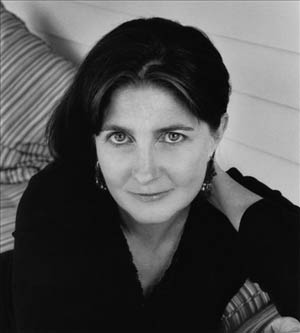
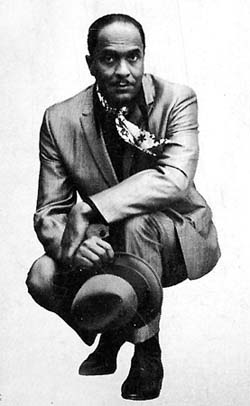
 It’s the death day of
It’s the death day of 

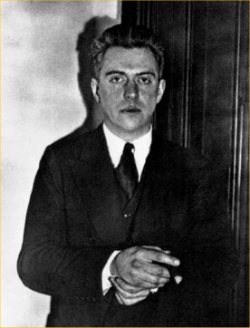
 It’s the death day of Hart Crane, who passed away seventy-eight years ago on April 27, 1932. Hart Crane committed suicide. But it was a cheery suicide, as suicides go. Even if the consequences leading up to the suicide were bizarre and far from happy. You have to credit Crane for his courtesy in shouting “Goodbye, everybody!” to a crowd before throwing himself off a steamship into the Gulf of Mexico. I mean, how many of the hundreds of people who have thrown themselves off the Golden Gate Bridge have managed to even do that? The Dead Writer’s Almanac staff has conducted an informal poll, and it seems that people who shout “Goodbye, everybody!” just before leaping to their needless deaths are now considered exhibitionists who rely upon some crude cry for attention, the equivalent to that annoying guy at the party who complains about the lackluster canapes and the diminishing liquor supply. Suicide victims are now expected to leap to their deaths with a stoic resolve. No commentary. Just the self-immolation itself. But that seems needlessly limited when you’re a talented American poet.
It’s the death day of Hart Crane, who passed away seventy-eight years ago on April 27, 1932. Hart Crane committed suicide. But it was a cheery suicide, as suicides go. Even if the consequences leading up to the suicide were bizarre and far from happy. You have to credit Crane for his courtesy in shouting “Goodbye, everybody!” to a crowd before throwing himself off a steamship into the Gulf of Mexico. I mean, how many of the hundreds of people who have thrown themselves off the Golden Gate Bridge have managed to even do that? The Dead Writer’s Almanac staff has conducted an informal poll, and it seems that people who shout “Goodbye, everybody!” just before leaping to their needless deaths are now considered exhibitionists who rely upon some crude cry for attention, the equivalent to that annoying guy at the party who complains about the lackluster canapes and the diminishing liquor supply. Suicide victims are now expected to leap to their deaths with a stoic resolve. No commentary. Just the self-immolation itself. But that seems needlessly limited when you’re a talented American poet.
 It’s the death day of
It’s the death day of 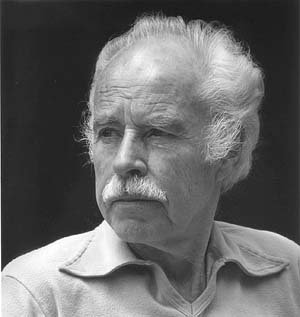
 It’s the death day of
It’s the death day of 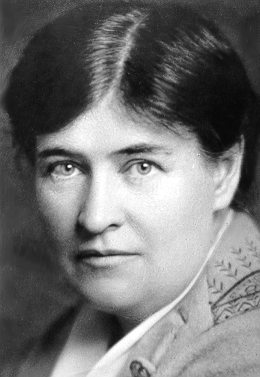
 It’s the death day of
It’s the death day of 
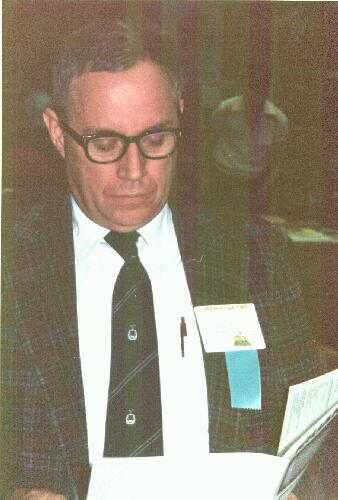
 Correspondent: So I’m here with George Scithers of Wildside Press. He is also the man who revived Weird Tales Magazine. Maybe you can tell us about that and what’s coming up from Wildside.
Correspondent: So I’m here with George Scithers of Wildside Press. He is also the man who revived Weird Tales Magazine. Maybe you can tell us about that and what’s coming up from Wildside.
 Should Hannah Tinti Fly First Class?
Should Hannah Tinti Fly First Class?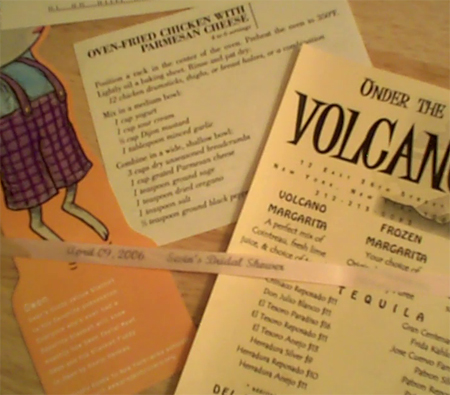





 Correspondent: The wonderful marvelous stadium shot that’s in the middle of this movie — it’s a hybrid of Black Sunday and Touch of Evil.
Correspondent: The wonderful marvelous stadium shot that’s in the middle of this movie — it’s a hybrid of Black Sunday and Touch of Evil. Correspondent: You clearly did not settle into the Old West or can foods or run a store.
Correspondent: You clearly did not settle into the Old West or can foods or run a store.
 There comes a rare time — perhaps once every ten or fifteen years — when you read a book with such dreadful syntax, without even a fiber of merit, so libertine in the manner it insults the audience, and so producing the literary equivalent to being completely submerged into a vat of shit, that the reader, having embarked on the fetid journey, begins to pine for a brutal throng of vigilantes to chop off the author’s hands and prevent the hopeless hack from ever holding a pen or setting foot near a laptop again.
There comes a rare time — perhaps once every ten or fifteen years — when you read a book with such dreadful syntax, without even a fiber of merit, so libertine in the manner it insults the audience, and so producing the literary equivalent to being completely submerged into a vat of shit, that the reader, having embarked on the fetid journey, begins to pine for a brutal throng of vigilantes to chop off the author’s hands and prevent the hopeless hack from ever holding a pen or setting foot near a laptop again. 

 Correspondent: I actually wanted to ask you of your keen interest in the Muppets.
Correspondent: I actually wanted to ask you of your keen interest in the Muppets. 

 Correspondent: You are careful to write, “Harvard’s importance in eugenics does not imply some nefarious scheme or even a mean-spirited ambiance. Rather, Harvard’s import in this story attests to the scholarly respectability of eugenic ideas at the time.”
Correspondent: You are careful to write, “Harvard’s importance in eugenics does not imply some nefarious scheme or even a mean-spirited ambiance. Rather, Harvard’s import in this story attests to the scholarly respectability of eugenic ideas at the time.” 
